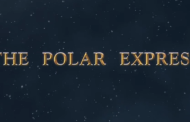Although we’ve heard little more than casting announcements, there has been little enthusiasm shown for 20th Century Fox’s reboot of The Fantastic Four, which is set to be released less than a year from now (June 19, 2015). Whether it’s the young age of the cast (Miles Teller, who is playing the usually grey-haired Mr. Fantastic, is only 27), the controversial-to-some casting of an African American actor (Michael B. Jordan) to play the traditionally Caucasian character Johnny Storm despite a Caucasian actress (Kate Mara) playing his traditionally biological sister Sue Storm, the rumors that it will have little to do with the comics, the relative inexperience of director Josh Trank, or simply overall dissatisfaction with Fox’s previous Fantastic Four films, fans have found a lot to complain about already. However, if rumors are to be believed angry fans aren’t even the movie’s biggest critic. That would be Marvel Entertainment itself.
According to several reports by Bleeding Cool, Marvel executives are asking its comic creators to stop creating new intellectual property in comics featuring the Fantastic Four and X-Men (which movie rights are also owned by Fox) in an effort to stifle the creative directions of the properties. In fact, Bleeding Cool has also reported that Marvel is going as far as planning to soon cancel all of its Fantastic Four comics and downplaying both the Fantastic Four and X-Men characters in its seventy-fifth anniversary promotional materials in favor of promoting Guardians of the Galaxy and Ant-Man characters — all of whom will star in upcoming Marvel Studios movies, of course. If true, one way to look at this is that Marvel is actively trying to distance its comics brand from Fox’s movies and hoping that Fox’s future films bomb without Marvel’s support, which could lead to Fox letting the movie rights lapse much like the studio did with the rights to Daredevil (which Marvel is now developing as a Netflix series).
Bleeding Cool pointed out the absence of any X-Men or Fantastic Four characters from this promotional Marvel 75th Anniversary Cover. Also notice the prominent placement of the Guardians of the Galaxy characters and Ant-Man.
While it initially seems questionable why Marvel would want to sabotage films it enjoys box office profits of (particularly after coming off the huge success of X-Men: Days of Future Past), this isn’t the first time Fox and Marvel have butted heads over their movie properties. In 2012, Fox asked Marvel for an extension on the Daredevil rights but reports claimed that Marvel demanded the rights to Fantastic Four villain Galactus as a tradeoff. Since this would have eviscerated the value of Fox’s Fantastic Four and Silver Surfer rights by preventing Fox from using one of the superhero team’s primary adversaries in any future film, Fox refused. More famously, the two studios also fought over the film rights of Quicksilver (eventually reaching a compromise that allowed both studios the rights to use the character) and even the word “mutant.”
Regardless of any lingering bad blood between the studios, it would be foolish for Marvel to stifle the popularity of two of its most valuable properties simply because it can’t play with them in its movie sandbox, especially since Marvel still makes money from those properties in dozens of other ways (including from the box office of Fox’s movies). Naturally Marvel is playing the long game here, banking on Fox eventually giving up their rights to these popular properties so Marvel can bring them into its Marvel Cinematic Universe fold and reboot them themselves. But that might take decades, especially considering that X-Men is Fox’s most financially successful franchise since Disney bought Star Wars and has breathed new life into the property with Days of Future Past.
Still, Kevin Feige, the President of Marvel Studios, has claimed that Disney has tentative plans laid out for the Marvel Cinematic Universe through 2028. Disney likely has no issue with waiting until 2028 or even later to release its own Fantastic Four or X-Men movies because of this game plan. After all, Disney bought Marvel in 2012 for $4 billion with the expectation that the Marvel superheroes would continue to make money for the studio perpetually, like Mickey Mouse, Winnie-the-Pooh, or any of the studio’s extremely valuable intellectual property. Disney just has to wait until Fox decides these movie rights aren’t worth it anymore, no matter how long it takes. Marvel just apparently feels that marginalizing the characters in other media might bring that about faster, and Disney is likely wary of heavily promoting characters it doesn’t own the movie rights for when it already owns the full rights (movie and otherwise) of hundreds of other Marvel characters.
However, it’s worth mentioning that Marvel’s rumored corporate hissy fit over Fox’s movie rights is ironic in comparison with Marvel’s decade-long fight against creator Jack Kirby and his estate’s attempts to regain control over the hundreds of characters he created or co-created for Marvel. I won’t get into the argument over whether or not Kirby’s heirs deserve a slice of Marvel’s multi-billion dollar profits (it’s an argument that covers nearly seventy-five years of comic book history and archaic contracts), but it isn’t surprising that Marvel is rumored to be playing hardball with Fox over the movie rights when the company has spent millions in legal fees to prevent Kirby (who died in 1994) and his heirs from having any claim to the characters he created for Marvel or the billions of movie profits the company has made off them.
Much like Marvel would not exist today without the contributions of Jack Kirby, Marvel, nor its hugely success movie franchises, would not exist today if it hadn’t sold the movie rights to its characters in the first place. When Marvel sold the movie rights to the Fantastic Four in the mid-1980s (which were eventually bought by Fox in 2004) and sold the movie rights to X-Men to Fox in 1994, the comic book company was not the lucrative juggernaut that it is today. In fact, the company filed for Chapter 11 bankruptcy protection in December 1996 and Marvel today would be very different if it wasn’t for the influx of cash from selling those film rights and, later, the money the movies brought in. Movies based on Marvel characters in the early 2000s like X-Men and Sony’s Spider-Man not only brought increased attention to Marvel’s characters, but served as a template for Marvel Studios to follow once it launched its own universe with 2008’s Iron Man. Disney executives might be annoyed that they can’t make X-Men or Fantastic Four movies, but the studio wouldn’t have a multi-billion dollar Marvel Cinematic Universe if Fox and the other studios hadn’t bought the movie rights in the first place all those years ago and proved how valuable these properties really are.
Sure, Disney and Marvel might be bitter about Fox’s X-Men: Days of Future Past doing better than Captain America: The Winter Soldier at the worldwide box office and Fox’s plans to take The Fantastic Four in a very different direction. However, Marvel’s rumored decision of sabotaging Fox’s films does little but hurt the properties as a whole and drag up ugly memories of how Jack Kirby’s family hasn’t seen a dime from the success of Marvel’s dozen hugely successful movies of the last fifteen years because of similar fights over creative rights.
It’s bad business for Marvel to damage otherwise successful properties just because Disney/Marvel can only have a piece of the pie instead of the whole thing. Trying to crash and burn the Fantastic Four comics in order to tank the reboot could hurt the property in ways it might never recover.
What’s your view of the rumors that Marvel Entertainment is trying to sink Fox’s Marvel movies? Share your thoughts in the comments below.
















12 Comments
Lewis Fields
I want Marvel to have the rights back, the sooner the better. I don’t like what Fox are doing with the fantastic four.
Chris McKittrick
Hi Lewis,
Fox has the movie rights to both X-Men and Fantastic Four as long as it wants them. The only reason Fox would give them up is if Fox decides the rights aren’t worth it — much like Fox did when it gave up the Daredevil/Elektra rights when Fox couldn’t put together a reboot that the studio thought would be profitable. Similarly, Marvel has gotten the movie rights back for Punisher, Ghost Rider, and Blade all because the various studios that owned those movie rights decided not to pursue new projects featuring them.
The only way Fox would give up the movie rights to Fantastic Four would be if the reboot movie bombs (like Elektra) and Fox decides it isn’t worth trying again. That’s why some have suspected that Marvel is trying to “sabotage” the Fantastic Four reboot, as I detailed above.
Thanks for reading!
Lewis Fields
Very aware of all of that my friend! I just think that Fox’s movie will fail, because quite frankly, it sounds terrible.
Chris McKittrick
Lewis,
Just making sure — a lot of people seem to be confused about how ironclad Fox’s ownership of the X-Men/FF rights are, especially since the Quicksilver situation. Glad to see you know better!
As I said below, I’m going to give Fantastic Four a chance, but I’m not optimistic based on what’s out there about it.
imkaisersoze
Marvel and Disney should do whatever it takes to rescue their titles from Fox. As good as DOFP was we had to sit through some terrible movies before we got there and who is to say Marvel could not have made better x-men movies years before DOFP? The proof is in the pudding, Marvel make the best Marvel movies, ’nuff said.
Chris McKittrick
Thanks for reading imkaisersoze!
Really Disney/Marvel have only three options when it comes to those movie rights:
1) Offer Fox millions (billions?) to buy the rights back
2) Disney buys Fox for billions of dollars
3) Wait until Fox willingly gives them up, like Fox did with the Daredevil rights
Obviously #1 and #2 are highly unlikely, so #3 is all Disney can go on right now.
I happen to be a big fan of the X-Men films (well, except X3 and Origins: Wolverine), so I’d like to see what else Fox can do with them. Frankly, we wouldn’t be seeing movies based on less-popular characters like Ant-Man, Guardians of the Galaxy, Big Hero 6, or Dr. Strange if Disney had the rights to make Fantastic Four and/or X-Men instead.
Alan
this movie will DOA and it’s not that the torch is black. It the whole cast that’s going to (doom doom doom) the whole movie. None of the people they have chosen could act their way out of a wet paper bag. and they are barely out of diapers. And I imagine the writers are probably of the same caliber. This movie is gonna be the biggest flop of all the super hero movie ever made. But they will try to make up for the lack by just having a lot of big explosions and blowing every thing up..Its literally gonna be a bomb of sh*t and its (doomed doomed doomed) hahahahahahaha!!!!!!!!!!!
Chris McKittrick
Alan,
I’ll definitely give Fantastic Four a chance, but the rumors that it will have little to do with the comics is not a great sign. That’s not to say that comic book movies that drift from the source material are universally bad (Fox’s X-Men: Days of Future Past movie is radically different from the comic, for example), but from what has been said it’s looking like Fantastic Four will be completely different.
I do have to disagree with you on one point though — Toby Kebbell (who is playing Dr. Doom) is an awesome actor. He plays Koba in Dawn of the Planet of the Apes, and if you check that out you’ll know he’s got what it takes to play Doom.
Thanks for reading!
Logan Judy
I get Marvel wanting to get Fantastic Four back given the mockery that it’s quickly looking like, but frankly, I’m confused by their doing this with X-Men. That franchise is enormously successful, bringing Disney/Marvel a lot of money in the process. And I can’t really see a cinematic universe that’s big enough to hold all of the current Marvel characters plus the X-Men. We’d either end up with a tiny cast in comparison to now, or it would just get ridiculous.
Chris McKittrick
Hi Logan,
That’s a great point about the Disney/Marvel universe not being big enough for the X-Men. Disney is only going to release (at most) 3 superhero movies a year, so if Disney did have the rights to X-Men it would mean less X-Men movies and less Avengers movies — and far less focus on the less popular characters.
Thanks for reading!
cezar211091 .
marvel wouldn’t exist as a movie studio without fox and sony,and now it’s showing its ugly greedy face.i have a feeling that this is more disney’s move
Chris McKittrick
Well, Marvel/Disney are one in the same now, but I know what you mean. Disney is fiercely protective of its intellectual property. But yeah, Marvel Studios wouldn’t exist if Spider-Man (Sony) and X-Men (Fox) hadn’t paved the way with their movies, which makes this look all sorts of petty. I understand why Disney only wants to promote the Marvel characters it has full control over, but Marvel probably wouldn’t even exist today if the movie rights weren’t sold back in the 1990s.
Thanks for reading!